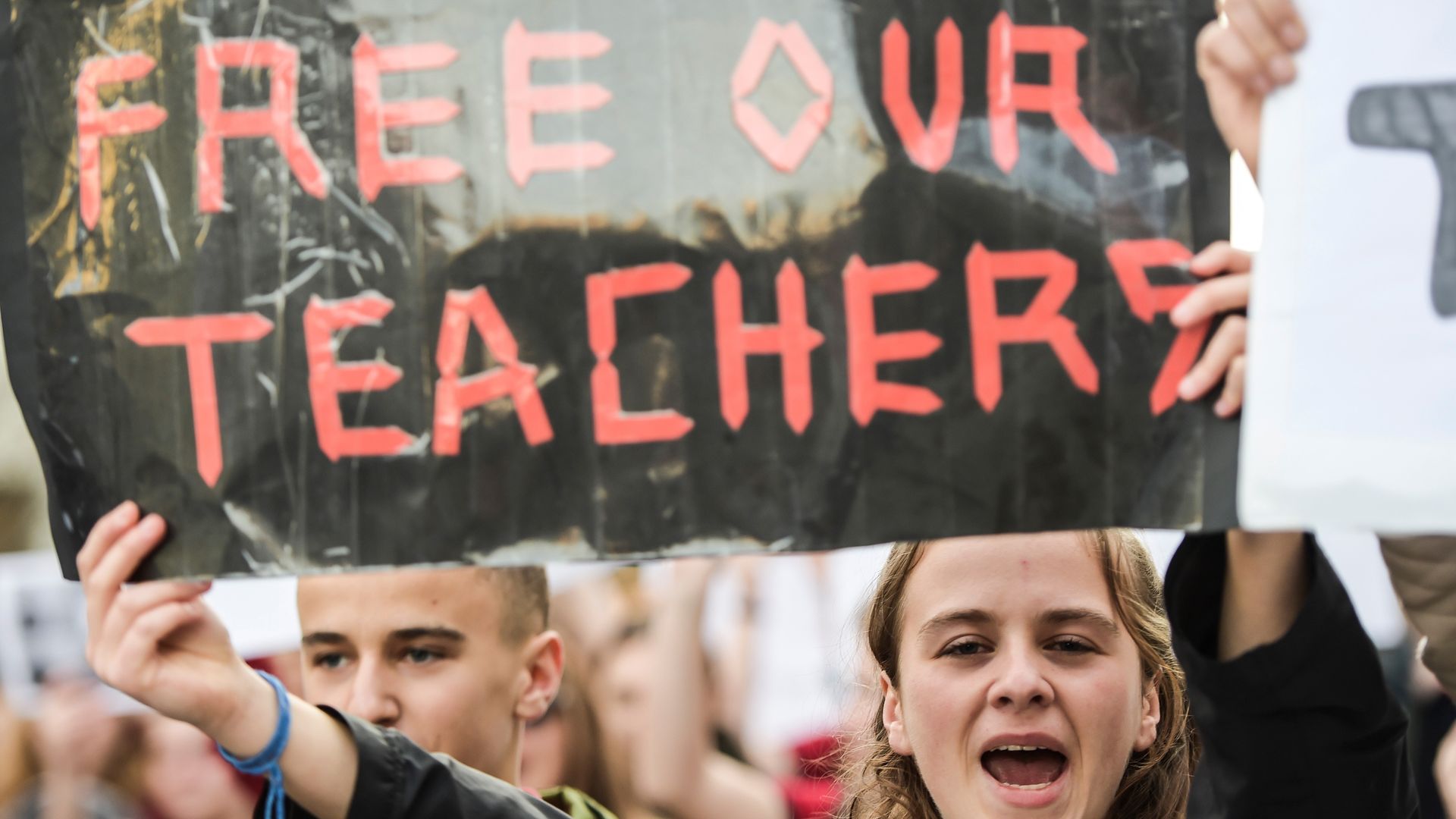Updated Apr 11, 2018
Expert VoicesIn new incursion, Turkey orchestrates rushed extraditions from Kosovo
Add Axios as your preferred source to
see more of our stories on Google.

Students of Mehmet Akif College protest the Turkish arrest of their teachers in Pristina, Kosovo, on March 29, 2018. Photo: Armend Nimani/AFP via Getty Images
